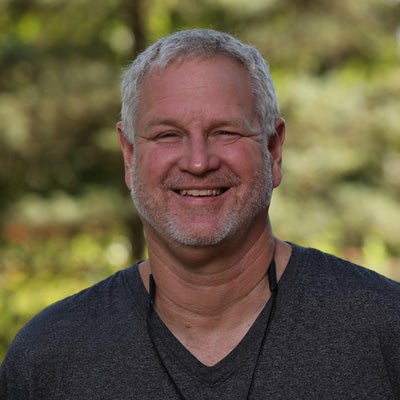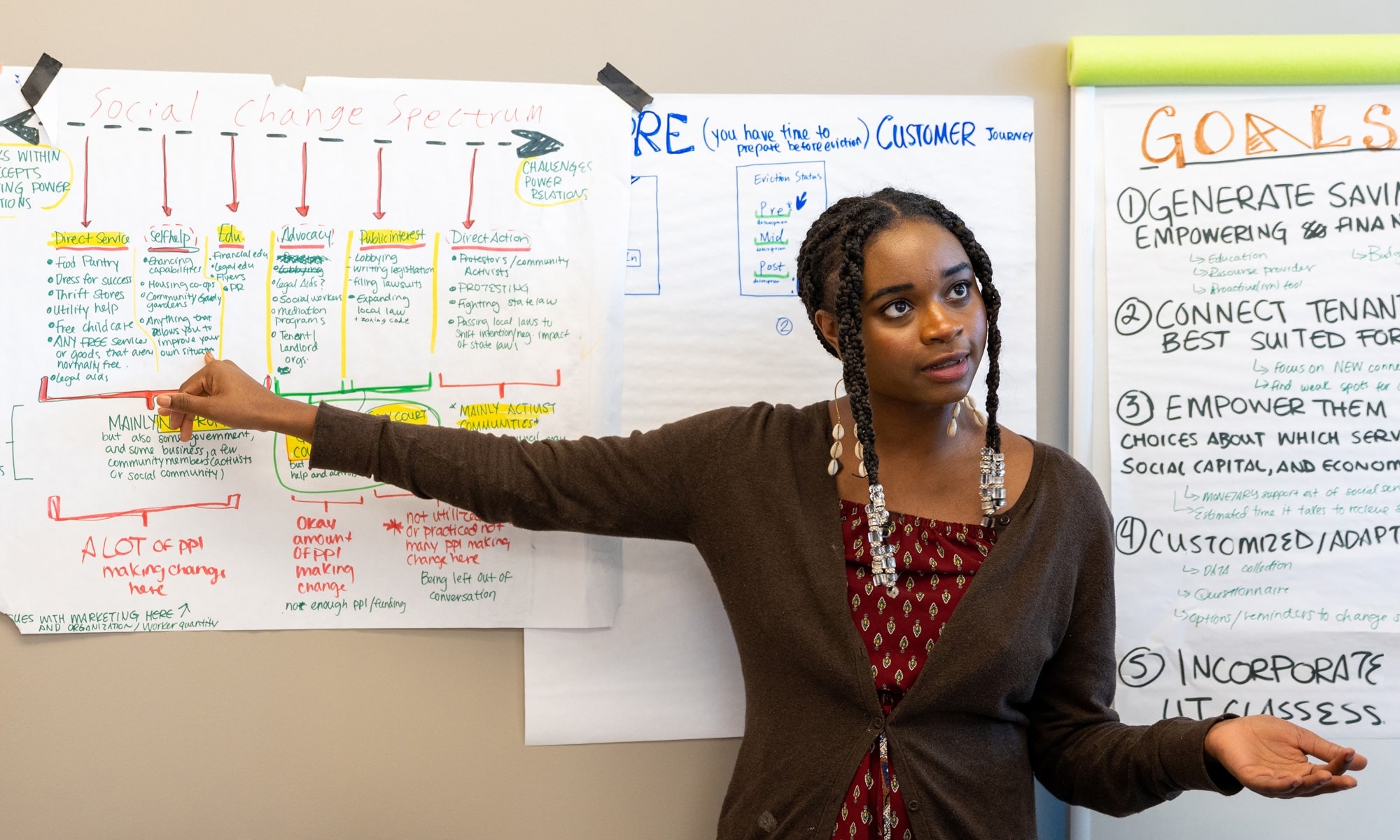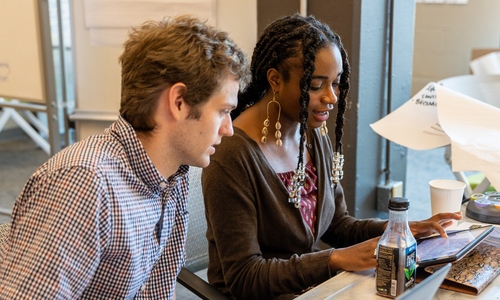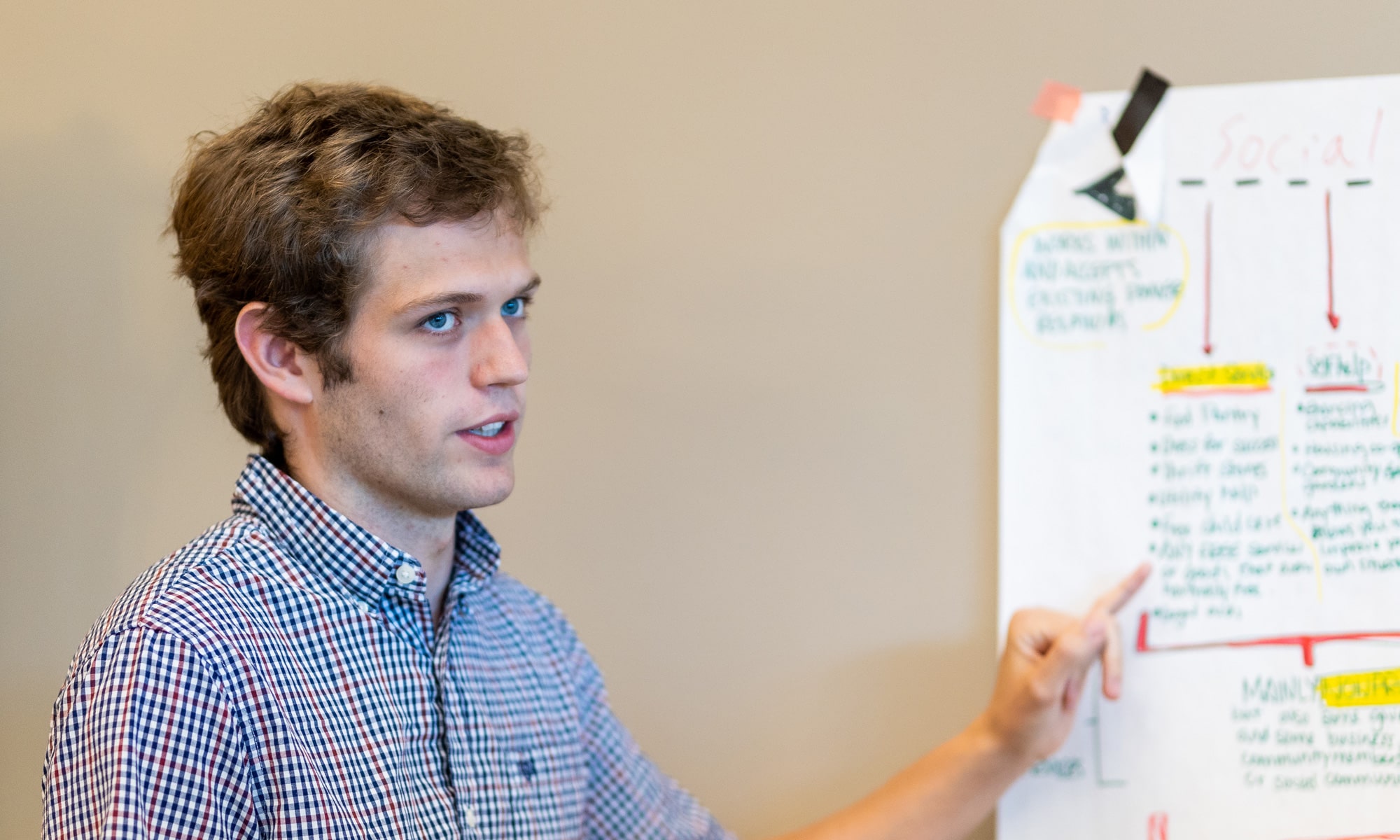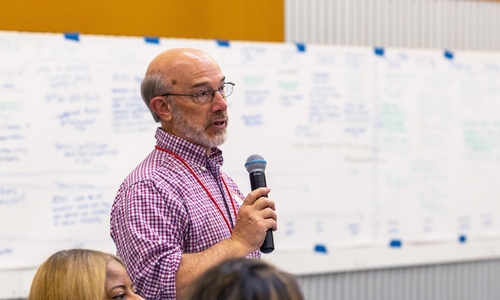Teddy Stahl ’23 steadied his nerves as he prepared to help deliver his group’s final presentation in a crowded Denison Edge classroom.
Dressed in a gray blazer and matching trousers, the rising senior mentally ran through the speech he had written the previous night. As teammates Kairuo Yan ’22 and Zora Whitfield ’24 loaded their digital pitch into a laptop, Stahl calmed himself by talking with a student seated in the front row who had remarked on his loafers.
“I’ve been waiting to bust these babies out,” he said.
Joking aside, Stahl wanted to make a strong impression on the last day of Denison Edge’s 2022 inaugural Summer Immersion program, which takes students’ noses out of textbooks and puts them on the scent of innovative business solutions through training and experience.
A few months earlier, Stahl didn’t know how he would spend his summer after an internship opportunity fell through. Now, in the last days of July 2022, he was addressing members of the business community and representatives from the City of Columbus, Ohio, on a significant topic.
“Today,” he said, “we are here to present Ayana, which is our digital platform to solve the Columbus housing crisis.”
Tackling complex Columbus challenges at Denison Edge
“I figured out that I’m much more of a doer than a planner,” Teddy Stahl ‘23 said after his Summer Immersion experience. “As I go into the future, I want to take on tasks directly.”
Stahl, Yan, and Whitfield were among 14 students — representing Denison, Capital University, Miami University, and the Columbus College of Art & Design (CCAD) — involved in the signature Denison Edge project that tasks participants with designing strategies to tackle complex problems facing select Columbus businesses.
The program, now known as CXEdge — The Customer Experience Innovation Lab, plans to draw applicants from across the nation, said its director, Michael Compton. The students will work and stay downtown (the first group was housed in CCAD residence halls), meet and network with leaders, learn about the needs of clients, and pitch ideas intended to foster change.
Eric Lloyd, director and program development lead at Denison Edge, said the six-week experience can serve as an alternative to internships for undergraduates and as resume builders for those with degrees.
“During the school year, you are writing a lot of papers and doing tons of research,” said Whitfield, a psychology and women and gender studies dual major at Denison. “I felt like I needed to be inspired. I needed to be in a space where people were problem-solving.”
Whitfield could not have scripted a better program for herself as her class partnered with the City of Columbus to search for solutions to affordable housing in Franklin County. Through the first six months of 2022, the county saw 9,690 eviction filings, on pace for the most since 2013.
“It was great to see the students so engaged on an issue that’s so important,” said Kim Stands, human services director for the City of Columbus.
In the spring, Compton and Kim Stands, the human services coordinator for the City of Columbus, met over coffee to discuss Denison Edge’s rollout for the program.
“Normally, we think about customer experience within the commercial and private realm,” Compton said. “The more we talked, the more we realized there was a good fit. We could not have selected a more relevant topic.”
Compton and Lloyd wasted no time in preparing their “junior innovation strategists” for the assignment.
Within the first week of the program, students attended eviction court proceedings at the Franklin County Municipal Court. They later met with renters, landlords, nonprofits, and city officials, listening to their concerns regarding affordable housing.
“It was eye-opening,” Whitfield said.
Designing “Ayana” — to help find affordable housing
Yan, who earned a data analytics degree from Denison and will attend graduate school at the University of Pittsburgh, is fascinated by tenant-landlord relations. She also found the multidisciplinary collaboration of students appealing.
Yan was the team member who designed Ayana, the group’s AI-powered app, named for a woman who met with students and told them of her own experiences with homelessness.
“My background is in mathematics, but I wanted to use that to try to solve problems related to affordable housing,” Yan said. “We are coming from different backgrounds, but we are all concerned with how to improve the experiences of tenants and landlords and how to create better communication and trust.”
Students chose to tackle the assignment either individually or in groups of two and three. As they prepared their digital presentations, all involving websites and apps, they learned lessons in design thinking, finance, marketing, logistics, and other business skills. They also worked with mentors and focus groups.
City officials and nonprofit representatives offered encouragement and constructive criticism.
“We got a lot of feedback,” Whitfield said, “which is a really beautiful thing.”
Stahl, a history major, said his group planned to build automated kiosks housed inside nonprofits, shelters, and food banks after several stakeholders mentioned that low-income residents might not have access to cell phones and internet.
Stands was thrilled with the ideas and recommendations from the students.
“I was excited on a lot of levels,” Stands said. “It was great to see the students so engaged on an issue that’s so important. My hope is that out of this, we take some of the ideas and see what we can implement, because the issue is not going to go away anytime soon.”
